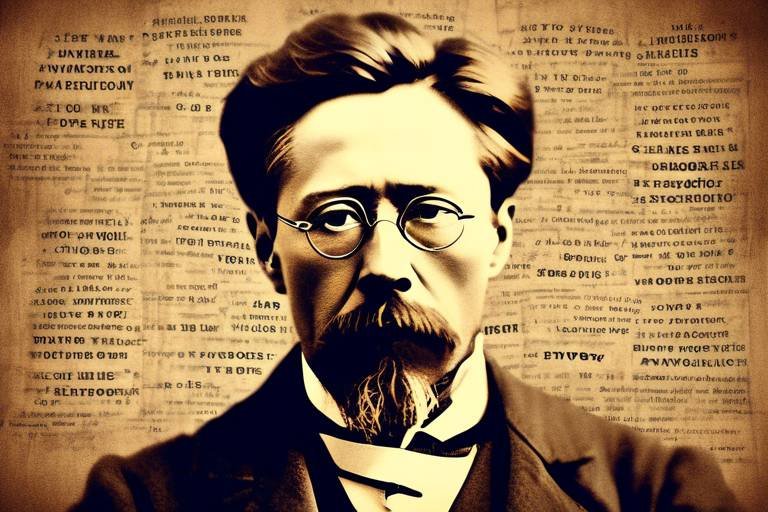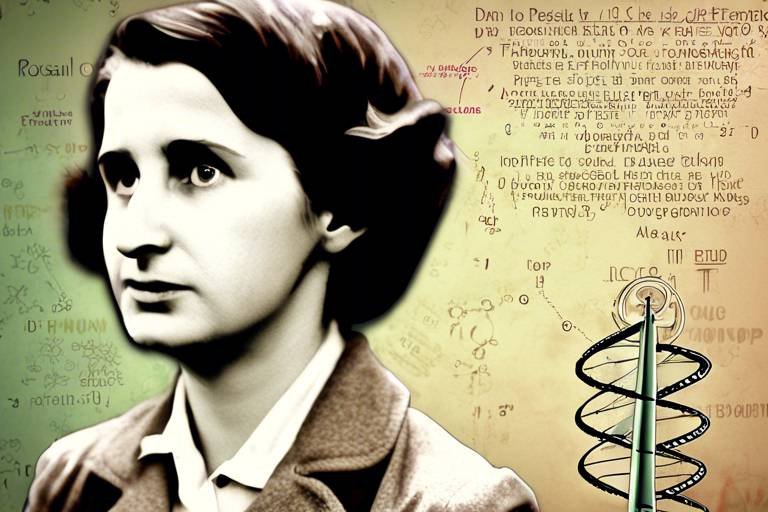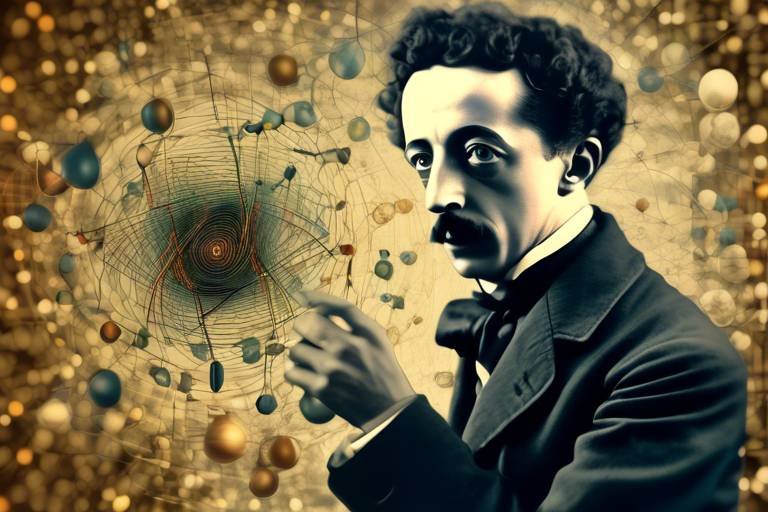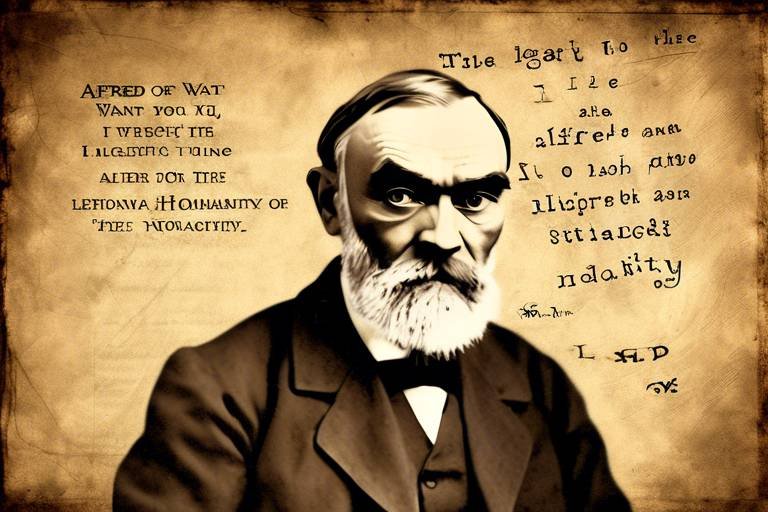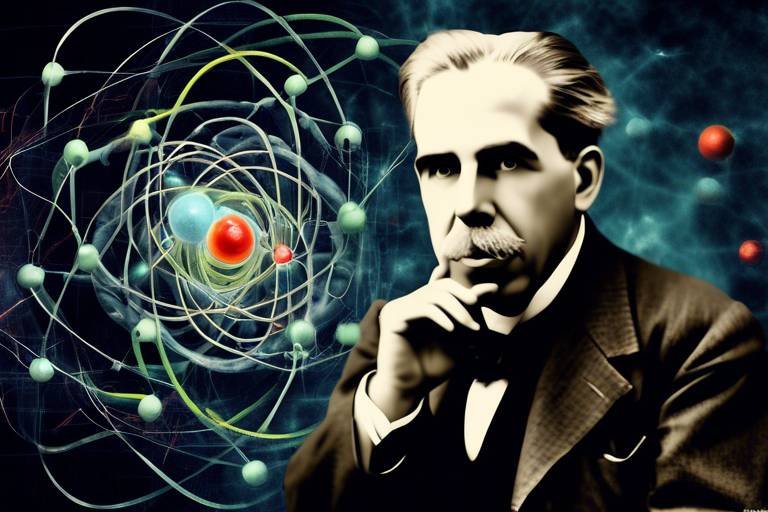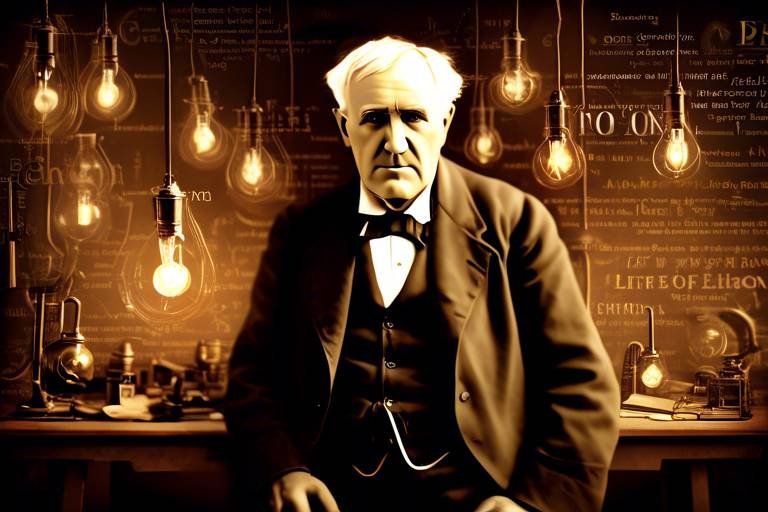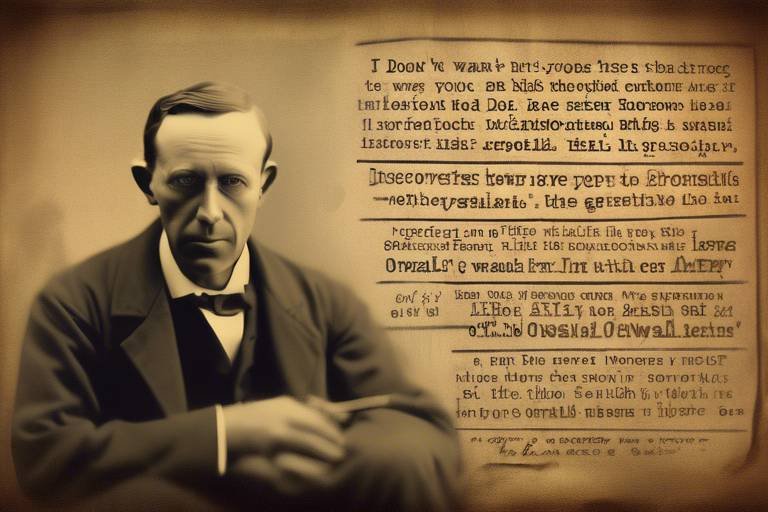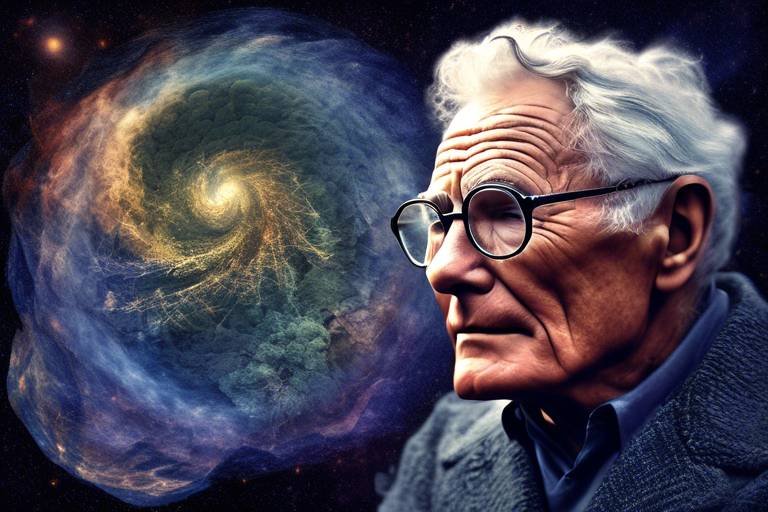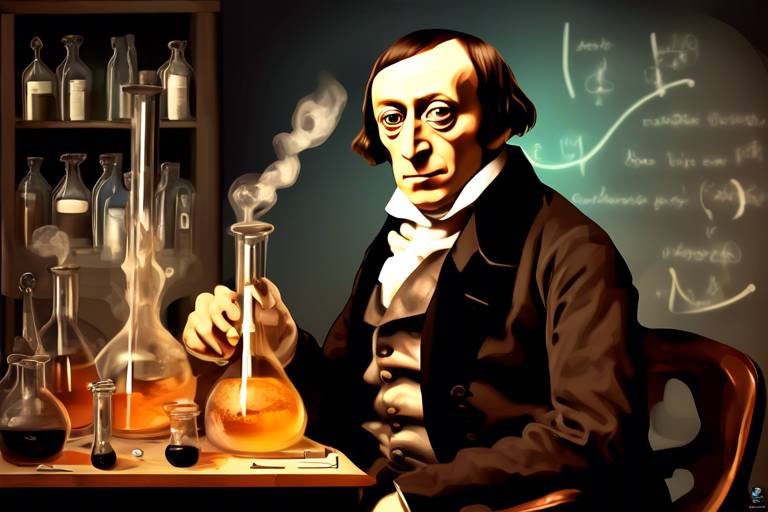The Life of Anton Pavlovich Chekhov and the Intersection of Medicine and Literature
Anton Pavlovich Chekhov, a name synonymous with literary genius, is often celebrated not just for his remarkable plays and short stories, but also for his profound understanding of the human condition, which was deeply influenced by his dual career as a physician. Born on January 29, 1860, in the small Russian town of Taganrog, Chekhov's early life was marked by a blend of hardship and aspiration. His father, a grocer, struggled financially, which compelled young Anton to work from an early age. However, this struggle also ignited a fire within him to pursue education, ultimately leading him to the prestigious Moscow University where he studied medicine. But what truly sets Chekhov apart is how he seamlessly intertwined his medical knowledge with his literary pursuits, creating a unique narrative style that resonates with readers even today.
Throughout his life, Chekhov maintained a delicate balance between his two passions: medicine and literature. While many might view these fields as disparate, for Chekhov, they were two sides of the same coin. His experiences in the medical field not only provided him with a steady income but also enriched his storytelling. Imagine a doctor who, instead of merely diagnosing ailments, delves into the emotional and psychological struggles of his patients; this was Chekhov. His writing is imbued with the empathy and insight he gained from his time spent tending to the sick, making his characters feel incredibly real and relatable. This duality in his career is what makes Chekhov's works so compelling; they are not just stories, but explorations of life, suffering, and the human spirit.
Chekhov's literary contributions are vast, spanning various genres and formats. He penned over 400 short stories and numerous plays, including the famous "The Seagull," "Uncle Vanya," and "The Cherry Orchard." Each work reflects his keen observations of society and human behavior, often infused with a touch of humor and a deep understanding of life's complexities. Critics often note that Chekhov's ability to capture the mundane aspects of life, while simultaneously revealing profound truths, is what sets him apart from his contemporaries. His characters, often ordinary individuals, grapple with their own existential dilemmas, making them relatable to a broad audience.
As we delve deeper into Chekhov's life, we uncover the philosophical underpinnings that guided his writing. He believed that literature should reflect life as it is, not as it should be. This belief is evident in his adherence to the principles of realism and naturalism, which emphasize the importance of portraying life with authenticity. Chekhov's works often feature characters who are caught in the web of their own circumstances, struggling to find meaning amidst chaos. This mirrors the unpredictability of life itself and resonates with readers on a personal level.
In conclusion, the life of Anton Pavlovich Chekhov is a testament to the power of intertwining passions. His journey from a small-town boy to a celebrated literary figure, all while practicing medicine, illustrates how diverse experiences can enrich one's creative output. Chekhov's legacy continues to inspire not only writers and playwrights but also medical professionals who seek to understand the human experience in all its complexities. His works serve as a reminder that art and science can coexist, each illuminating the other in profound ways.
- What influenced Chekhov's writing style? Chekhov's experiences as a physician greatly influenced his writing, providing him with insights into human emotions and suffering.
- How did Chekhov balance his medical career and writing? Chekhov managed his time effectively, practicing medicine while also dedicating significant hours to writing, often drawing inspiration from his patient encounters.
- What are some of Chekhov's most famous works? Some of his most notable works include "The Seagull," "Uncle Vanya," and "The Cherry Orchard," all of which highlight his unique narrative style and character development.
- What literary movements did Chekhov contribute to? Chekhov is primarily associated with realism and naturalism, movements that emphasize authentic representation of life and human experiences.

Chekhov's Early Life
Anton Pavlovich Chekhov was born on January 29, 1860, in the small port town of Taganrog, Russia. Growing up in a family of modest means, Chekhov's early years were marked by a blend of hardship and creativity. His father, a grocer, had a strict and sometimes harsh demeanor, which often cast a shadow over Chekhov's childhood. However, it was his mother, a talented storyteller, who ignited the spark of imagination in young Anton. Her vivid tales and the rich oral traditions of their community played a crucial role in shaping his literary ambitions.
As a child, Chekhov was a voracious reader, devouring works from various genres. This early exposure to literature not only honed his narrative skills but also provided a refuge from the challenges he faced at home. The contrast between his tumultuous family life and the worlds he discovered in books fueled his desire to write. In fact, he often used writing as a therapeutic outlet, a way to escape the confines of his reality. It’s fascinating to think how the struggles of his youth laid the groundwork for the profound themes of human suffering and resilience that would later permeate his works.
Education was a significant aspect of Chekhov's early life. He attended a local school where he excelled academically, despite the financial strains his family faced. To support the household, Chekhov began tutoring younger students, which not only contributed to the family income but also provided him with valuable life experiences. His dedication to education was unwavering, and he eventually enrolled at the University of Moscow, where he pursued a degree in medicine. This decision was pivotal, as it marked the beginning of his dual career path—one foot in the world of healing and the other in the realm of storytelling.
During his university years, Chekhov juggled his studies with writing short stories, often publishing them in various magazines to help pay for his education. His early works, while not yet reflective of his later genius, showcased his unique voice and keen observation of human nature. The characters he created were often drawn from his own experiences and the people he encountered in Taganrog and Moscow. It’s intriguing how his life experiences, both personal and professional, would later merge to create a literary style that was both innovative and deeply empathetic.
In summary, Chekhov's early life was a tapestry woven with threads of hardship, creativity, and ambition. His upbringing in Taganrog provided a fertile ground for his literary aspirations, while his medical education enriched his understanding of the human condition. The intersection of these two worlds would not only define his career but also leave an indelible mark on literature. As we delve deeper into Chekhov's journey, we see how the experiences of his youth shaped the themes and characters that would resonate with readers for generations.

Medical Education and Career
Anton Pavlovich Chekhov's journey into the world of medicine began in the bustling port city of Taganrog, Russia, where he was born in 1860. From an early age, he exhibited a strong affinity for both the sciences and the arts, which ultimately shaped his dual career. Chekhov's decision to pursue a medical degree was not merely a practical choice; it was a profound reflection of his desire to understand the human condition. He enrolled at the Moscow State University Medical School in 1879, where he dedicated himself to his studies with the same fervor he would later apply to his writing.
During his time in medical school, Chekhov was known for his diligence and curiosity. He balanced the rigors of medical education with his burgeoning literary career, often writing short stories to support himself financially. This period of intense study and creativity laid the groundwork for his future as both a physician and a playwright. By the time he graduated in 1884, Chekhov had already begun to establish a reputation as a writer, but his medical training was far from over. He took on various roles, including working in a hospital and serving as a country doctor, which exposed him to a wide array of human experiences.
Chekhov's commitment to medicine was evident in his practice. He worked tirelessly, often treating patients in rural areas, which gave him firsthand insight into the struggles and resilience of ordinary people. This exposure to the realities of life and death profoundly influenced his writing style. For instance, his stories often reflect a deep empathy for his characters, showcasing their vulnerabilities and complexities. Chekhov's medical career was not just a backdrop for his literary pursuits; it was an integral part of his identity, informing his narrative techniques and character development.
In his practice, Chekhov encountered a diverse range of patients, each with unique stories and ailments. These interactions inspired many of the themes present in his works. He often depicted characters grappling with illness, despair, and the quest for meaning in their lives. The emotional depth he gleaned from these patient encounters added layers of authenticity to his stories, making them resonate with readers on a profound level. Chekhov's ability to weave his medical experiences into his literary creations is a testament to the synergy between his two passions, illustrating how his career as a physician enriched his narrative voice.
Moreover, Chekhov's medical education instilled in him a philosophy of observation and reflection, which became a hallmark of his writing. He believed that the essence of storytelling lay in the details—much like a physician diagnosing a patient. This meticulous attention to the human experience allowed him to craft characters that felt real and relatable. His works often explore the intersection of health and illness, illustrating how these themes reflect broader societal issues. Chekhov's unique perspective as a doctor enabled him to delve into the intricacies of human relationships, making his literary contributions all the more impactful.
In summary, Anton Chekhov's medical education and career were pivotal in shaping his literary voice. The skills he honed as a physician—empathy, observation, and a deep understanding of human suffering—seeped into his writing, creating a rich tapestry of narratives that continue to resonate with audiences today. His ability to bridge the gap between medicine and literature not only defined his career but also left an indelible mark on the landscape of modern storytelling.

The Role of Medicine in His Writing
Anton Pavlovich Chekhov's dual career as a physician and a playwright is not just a coincidence; it is a profound intersection that shaped his literary voice. His medical background provided him with a unique lens through which he could view the world, allowing him to explore the intricacies of human nature with an authenticity that few writers can achieve. Chekhov once said, "Medicine is my lawful wife, and literature is my mistress." This metaphor captures the essence of his life, where the two fields continuously informed and enriched one another.
Chekhov's experiences in the medical field deeply influenced his storytelling. His patients were more than just cases to him; they were individuals with stories, emotions, and struggles. This perspective allowed him to create characters that resonated with readers on a personal level. For instance, in his short stories, he often depicted characters grappling with illness and existential despair, reflecting the reality of human suffering that he witnessed in his practice. His ability to portray such raw human emotions stemmed from his firsthand experiences, which added layers of depth to his narratives.
Moreover, Chekhov's training in medicine instilled in him a keen sense of observation. He had a knack for noticing the subtle nuances of human behavior and the complexities of relationships, which became hallmarks of his writing style. His characters often find themselves in mundane situations, yet Chekhov elevates these moments by revealing their underlying emotional truths. This approach is reminiscent of a doctor diagnosing a patient; he carefully examines the symptoms before arriving at a conclusion. In Chekhov's case, the symptoms are the characters' struggles, and the conclusions are the poignant insights into human nature that he masterfully conveys.
To illustrate the role of medicine in his writing, let’s look at some key themes that recur throughout his works:
- Human Suffering: Chekhov's medical background allowed him to portray suffering with empathy and realism. His characters often face physical and emotional pain, mirroring the challenges he encountered in his practice.
- Mortality: The inevitability of death is a recurring motif in Chekhov’s stories. His experiences with terminally ill patients informed his reflections on life and death, making his narratives resonate with a profound sense of urgency.
- Isolation: Many of Chekhov's characters experience profound loneliness, a theme that reflects the isolation he sometimes felt as a physician, caught between the demands of his profession and his literary ambitions.
In conclusion, Chekhov’s medical career was not merely a backdrop to his literary pursuits; it was a vital part of his creative process. The intersection of medicine and literature in his life allowed him to craft stories that are not only engaging but also deeply human. His ability to blend these two worlds has left a lasting legacy, inspiring countless writers to explore the depths of human experience through their own unique lenses. Just as a doctor listens to the heartbeat of a patient, Chekhov listened to the heartbeat of humanity, and in doing so, he created a body of work that continues to resonate with readers today.
1. How did Chekhov's medical background influence his writing?
Chekhov's medical background allowed him to portray human suffering and emotion with authenticity. His experiences with patients informed his character development and thematic choices, making his narratives resonate deeply with readers.
2. What are some common themes in Chekhov's works?
Common themes include human suffering, mortality, and isolation. These themes reflect Chekhov's insights gained from his medical practice and his observations of human nature.
3. How did Chekhov balance his career in medicine and literature?
Chekhov managed to balance both careers by viewing them as complementary. His medical career provided him with insights and experiences that enriched his literary work, while his writing offered a creative outlet for his thoughts and emotions.

Patient Encounters
Anton Pavlovich Chekhov's experiences as a physician were not just a means to earn a living; they were a profound source of inspiration for his literary works. Each patient he encountered in the clinic became a character in his mind, a living embodiment of the human condition. Imagine walking into a clinic filled with the sounds of coughs, whispers, and the rustle of paper as patients await their turn. For Chekhov, these moments were rich with stories waiting to be told. He had a unique ability to observe the intricacies of human emotion and suffering, allowing him to weave these experiences into his narratives.
Chekhov's interactions with patients often revealed the fragility of life, the complexity of human relationships, and the stark reality of illness. He once noted, "Medicine is my lawful wife, and literature is my mistress." This statement encapsulates his dual commitment to both fields, highlighting how his medical practice informed his writing. In the clinic, he encountered a diverse array of individuals, each with their own stories, struggles, and triumphs. These encounters not only shaped his understanding of human suffering but also influenced the authenticity of his characters.
Take, for example, a seemingly routine visit with a patient suffering from tuberculosis. Chekhov would not only treat the physical symptoms but also engage in conversations that unveiled the patient’s fears, dreams, and regrets. This holistic approach to medicine allowed him to grasp the emotional weight carried by his patients, which he later reflected in his stories. Through his characters, readers can feel the weight of despair, the flicker of hope, and the nuances of human interaction. His ability to translate these real-life encounters into literary gold is what sets him apart as a writer.
In many of his stories, Chekhov’s patients are not merely vessels of illness but represent broader themes of resilience and vulnerability. For instance, in "The Complaints Book," he portrays a character who, despite facing a terminal illness, finds solace in the beauty of life’s fleeting moments. This narrative reflects Chekhov’s belief that even in suffering, there exists a profound depth of experience that can lead to personal growth and understanding.
Moreover, Chekhov’s clinic experiences allowed him to explore the social and economic disparities that plagued Russian society at the time. He often encountered patients from various backgrounds, each with their own struggles. This exposure to different walks of life enabled him to craft complex characters that resonate with readers across generations. The rich tapestry of human experiences he observed in the clinic became a driving force in his writing, elevating his stories from mere fiction to poignant reflections of reality.
In summary, Anton Chekhov’s patient encounters provided him with a treasure trove of inspiration. His ability to blend the art of medicine with the craft of storytelling resulted in works that are not only entertaining but also deeply insightful. Each character, inspired by real-life interactions, serves as a reminder of the intricate tapestry of human existence. Through his lens, we are invited to explore the depths of human emotion, the struggles of life, and the inevitable dance with mortality.
- What was Chekhov's primary profession? Chekhov was both a physician and a playwright, balancing his career in medicine with his passion for writing.
- How did Chekhov's medical background influence his writing? His experiences as a doctor provided him with a deep understanding of human suffering, which enriched his character development and narrative techniques.
- What themes are prevalent in Chekhov's works? Common themes include the complexities of human relationships, the fragility of life, and the intersection of health and illness.
- Why is Chekhov considered a significant figure in literature? Chekhov's innovative storytelling techniques and deep psychological insights have had a lasting impact on modern literature.
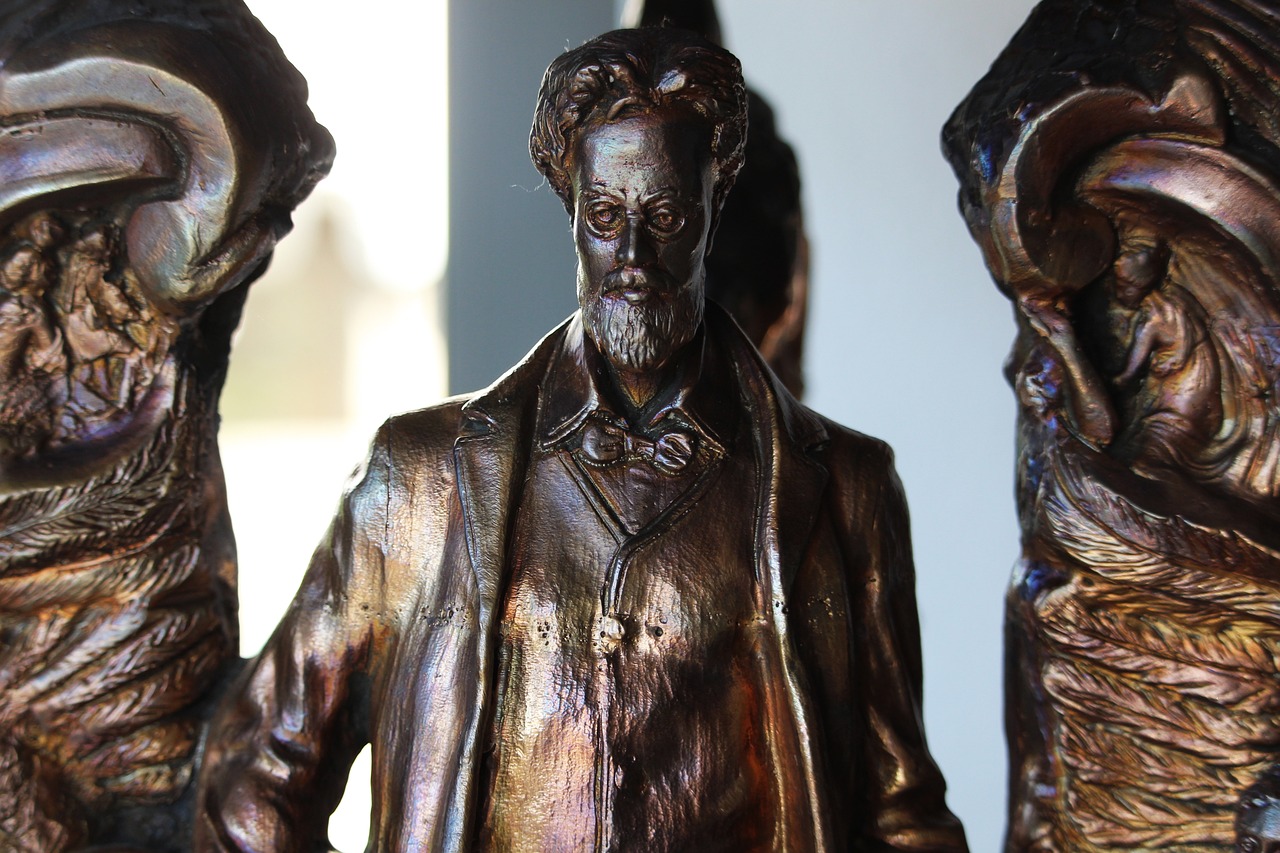
Medical Themes in Chekhov's Works
Anton Pavlovich Chekhov’s literary genius is profoundly intertwined with his medical background, creating a unique lens through which he explored the intricacies of the human condition. His works often reflect a deep understanding of health, illness, and the fragility of life. This intersection of medicine and literature not only enriches his narratives but also provides a poignant commentary on the human experience.
One of the most compelling aspects of Chekhov's storytelling is his ability to portray medical themes with a sense of realism that resonates with readers. His experiences as a physician allowed him to observe the nuances of human suffering, which he skillfully wove into his characters and plots. For instance, in his short story "The Complaints Book," Chekhov delves into the psychological impacts of illness, illustrating how it can shape one's identity and relationships. This exploration of the mind-body connection is a recurring theme in his works, emphasizing the complex interplay between physical ailments and emotional turmoil.
Moreover, Chekhov often depicted the inevitability of death and the struggles associated with it. His characters are frequently confronted with mortality, prompting reflections on the meaning of life. In plays like "The Cherry Orchard," the characters grapple with the loss of their estate, symbolizing not just a physical loss but also the fading of their hopes and dreams. Here, Chekhov uses the backdrop of impending financial ruin to explore deeper existential questions, making the theme of mortality palpable and relatable.
Chekhov's medical insights also influenced his portrayal of doctor-patient relationships. He understood that healing is not merely about treating physical ailments but also about addressing emotional and psychological needs. In stories such as "Ward No. 6," he presents a chilling examination of the mental health care system, revealing how societal neglect can lead to despair and dehumanization. This narrative not only critiques the medical establishment but also invites readers to consider the broader implications of mental health in society.
Additionally, Chekhov often incorporated elements of humor and irony into his medical themes, providing a balanced perspective on serious subjects. His ability to find humor in the absurdity of life, even in the face of suffering, adds a layer of complexity to his works. Characters like the hapless doctor in "The Doctor" illustrate the often comical yet tragic nature of the medical profession, highlighting the challenges faced by healthcare providers in their quest to heal.
In summary, the medical themes in Chekhov's works serve as a testament to his profound understanding of humanity. His dual career as a physician and a writer allowed him to craft narratives that are not only engaging but also deeply insightful. By exploring the themes of health, illness, and mortality, Chekhov invites readers to reflect on their own lives and the universal experiences that connect us all.
- What influenced Chekhov's writing style? Chekhov's medical background played a significant role in shaping his writing style, allowing him to infuse realism and depth into his characters and narratives.
- How did Chekhov address mental health in his works? He often portrayed the complexities of mental health and the challenges faced by individuals within the healthcare system, as seen in stories like "Ward No. 6."
- What are some common themes in Chekhov's literature? Common themes include health, illness, mortality, and the human condition, all explored with a blend of realism, humor, and irony.

Literary Contributions
Anton Pavlovich Chekhov is often hailed as one of the most significant figures in the world of literature, particularly in the realms of drama and short stories. His unique ability to intertwine the mundane with the profound has left an indelible mark on the literary landscape. Chekhov's contributions are not merely confined to the pages of his works; they resonate through the very fabric of modern storytelling. One of the most remarkable aspects of Chekhov's writing is his innovative use of subtext. He often left things unsaid, allowing readers to infer deeper meanings and emotions from his characters' actions and dialogues.
Chekhov's short stories are masterpieces of brevity and depth. In them, he captures the essence of human experience with remarkable precision. His stories often revolve around ordinary people facing everyday dilemmas, yet he elevates these scenarios to explore universal themes of love, loss, and existential angst. For example, in "The Lady with the Dog," Chekhov explores the complexities of love and infidelity, presenting characters that are both flawed and relatable. This ability to depict the intricacies of human relationships has made his work timeless and relevant.
Moreover, Chekhov's plays, such as "The Cherry Orchard" and "Uncle Vanya," showcase his mastery of dialogue and character development. He had a keen understanding of human psychology, which allowed him to create multi-dimensional characters that reflect the struggles and aspirations of real people. His plays often feature a blend of humor and tragedy, demonstrating that life is rarely black and white. Chekhov's use of dramatic irony further enriches his narratives, as audiences become aware of the characters' shortcomings and misjudgments, creating a poignant tension throughout the performance.
Another noteworthy contribution is Chekhov's pioneering approach to the short story format. He is credited with redefining the genre, moving away from the traditional narrative structures of his time. His stories often lack a clear resolution, mirroring the unpredictability of life itself. This departure from convention has influenced countless writers, encouraging them to experiment with narrative forms and embrace ambiguity. In fact, many of his contemporaries and successors have cited Chekhov as a major influence on their own writing.
Chekhov's literary legacy is not just about the stories he wrote; it is also about the way he approached the craft of writing. He believed that a writer should observe life closely, drawing inspiration from the world around them. His famous quote, "Don't tell me the moon is shining; show me the glint of light on broken glass," encapsulates his philosophy of showing rather than telling. This principle has become a cornerstone of modern storytelling, encouraging writers to engage readers through vivid imagery and sensory details.
In addition to his narrative techniques, Chekhov's exploration of social issues in his works is commendable. He often tackled themes such as class disparity, the plight of women, and the struggles of the lower classes in Russian society. His ability to weave these themes into compelling narratives not only entertains but also provokes thought and discussion among readers. This aspect of his work has inspired many writers to use literature as a platform for social commentary, proving that storytelling can be a powerful tool for change.
In summary, Anton Chekhov's literary contributions are vast and varied. His innovative approaches to character development, narrative structure, and thematic exploration have solidified his status as a literary giant. By blending the personal with the universal, Chekhov has created works that continue to resonate with audiences today. His legacy is one of inspiration, inviting writers and readers alike to delve into the complexities of the human experience.
- What are some of Chekhov's most famous works?
Chekhov is best known for his plays "The Cherry Orchard," "Uncle Vanya," and his short stories such as "The Lady with the Dog" and "The Bet." - How did Chekhov's medical background influence his writing?
His experiences as a physician provided him with a deep understanding of human suffering and resilience, which he skillfully portrayed in his literary works. - What themes are prevalent in Chekhov's literature?
Chekhov often explored themes of love, loss, human relationships, and social issues, reflecting the complexities of life. - Why is Chekhov considered a pioneer of the short story genre?
He redefined the short story format by focusing on character-driven narratives and often leaving stories open-ended, which influenced many writers after him.
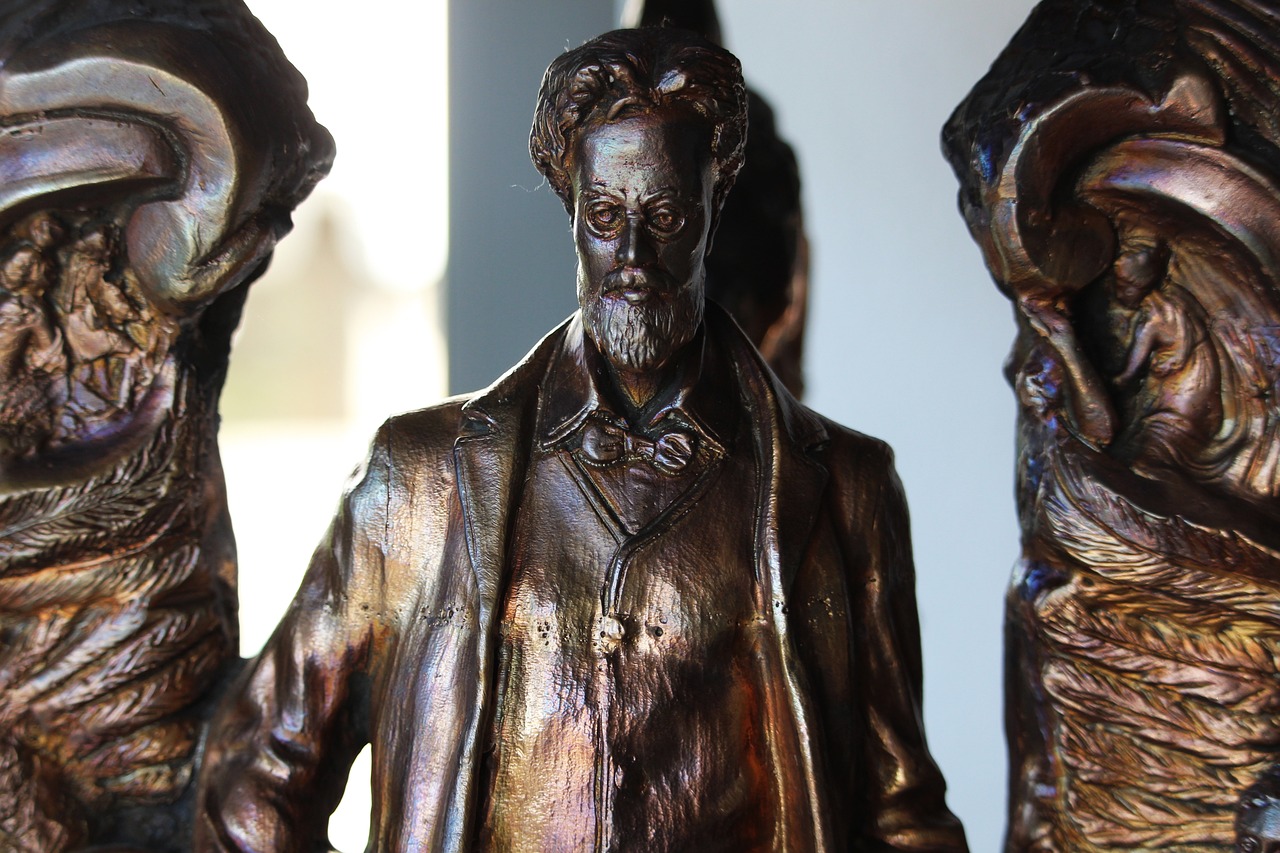
Philosophy of Life and Art
Anton Pavlovich Chekhov's philosophy of life and art is a rich tapestry woven from his experiences as both a physician and a playwright. His unique perspective on the human condition is palpable in his writing, where he often reflects on the complexities of existence, the fragility of life, and the beauty found in everyday moments. Chekhov believed that art should mirror life, capturing its essence in all its messy, chaotic glory. He famously stated, "Art should represent life, not the way it is, but the way it should be." This belief resonates deeply throughout his body of work, where he masterfully blends realism with a profound understanding of human emotions.
At the core of Chekhov's philosophy is the idea that life is inherently unpredictable, filled with both joy and suffering. He often portrayed characters who navigate the tumultuous waters of their existence, revealing their vulnerabilities and strengths. Chekhov's characters are not mere figments of imagination; they are reflections of real people, facing dilemmas that resonate with readers across time and space. This authenticity is what makes his works timeless and relatable.
Chekhov's writing style is also a testament to his philosophical views. He employed a technique known as subtext, where the true meaning of a scene often lies beneath the surface. This subtlety invites readers to engage with the text on a deeper level, encouraging them to interpret the characters' emotions and motivations. In his stories, what is left unsaid often carries more weight than the spoken dialogue, creating a sense of realism that mirrors the complexities of human communication.
Moreover, Chekhov's experiences as a doctor profoundly influenced his artistic vision. His encounters with patients exposed him to the raw realities of suffering, illness, and mortality. This understanding of the human body and spirit infused his writing with a sense of empathy and compassion. He often explored themes of health and illness, using them as metaphors for the broader human experience. In his stories, illness is not just a physical ailment; it represents the struggles and challenges that define our lives.
In Chekhov's world, art is not just a means of entertainment; it serves a higher purpose. It is a vehicle for exploring the human experience, a way to foster understanding and connection among people. He believed that through art, we can confront our fears, grapple with our emotions, and ultimately find solace in shared experiences. This philosophy is evident in his plays, where characters often engage in profound conversations about life, love, and the passage of time.
Chekhov's legacy continues to inspire contemporary writers and artists, encouraging them to embrace the complexities of life in their work. His belief that art should reflect the human experience remains relevant today, challenging creators to delve into the depths of their own experiences and emotions. By doing so, they can craft narratives that resonate with audiences, much like Chekhov did in his time.
- What is Chekhov's philosophy of life?
Chekhov believed that life is unpredictable and filled with both joy and suffering, and that art should mirror this complexity. - How did Chekhov's medical background influence his writing?
His experiences as a physician provided him with a deep understanding of human suffering and resilience, which he incorporated into his characters and narratives. - What is subtext in Chekhov's writing?
Subtext refers to the underlying meaning in a scene that is not explicitly stated, inviting readers to engage with the text on a deeper level. - How does Chekhov's work remain relevant today?
Chekhov's exploration of the human experience continues to resonate with modern audiences, encouraging writers to reflect on their own lives in their art.

Realism and Naturalism
Anton Pavlovich Chekhov is often celebrated for his profound contributions to the literary movements of realism and naturalism. These movements sought to depict life as it truly is, focusing on the mundane and the ordinary, rather than idealized or romanticized narratives. Chekhov's works are prime examples of this philosophy, as he intricately wove the complexities of human existence into his stories and plays, creating a mirror that reflects society in its rawest form.
Realism, in essence, is about portraying everyday life with honesty and accuracy. It strips away the embellishments often found in romantic literature, presenting characters that are relatable and situations that resonate with the reader's own experiences. Chekhov's characters are not larger-than-life heroes; instead, they are ordinary people grappling with their own flaws, desires, and disappointments. For instance, in his short story "The Lady with the Dog," we encounter Gurov, a man who is both charming and deeply flawed, navigating the complexities of love and infidelity. Through Gurov, Chekhov captures the essence of human relationships, complete with their imperfections and contradictions.
On the other hand, naturalism takes realism a step further, emphasizing the influence of environment, heredity, and social conditions on human behavior. Chekhov's medical background significantly shaped his understanding of the human condition, allowing him to portray life with a scientific lens. He often explored how external factors, such as poverty, illness, and societal expectations, impact individuals’ lives. In works like "The Seagull" and "Uncle Vanya," we see characters trapped by their circumstances, struggling against forces beyond their control. This deterministic view of life reflects the naturalist belief that human beings are products of their environment, often leading to a sense of fatalism.
Chekhov's mastery lies in his ability to blend these two movements seamlessly. He does not merely present characters in their environments; he delves deep into their psyches, revealing their innermost thoughts and feelings. This psychological depth is a hallmark of his writing, allowing readers to empathize with characters who might otherwise seem distant or unrelatable. Through his nuanced portrayals, Chekhov invites us to reflect on our own lives and the societal structures that shape our experiences.
To further illustrate the intersection of realism and naturalism in Chekhov's work, consider the following table that highlights key characteristics of both movements:
| Characteristic | Realism | Naturalism |
|---|---|---|
| Focus | Everyday life and ordinary people | Influence of environment and heredity |
| Characterization | Relatable, flawed individuals | Characters as products of their circumstances |
| Themes | Human relationships and social issues | Determinism and the struggle against fate |
| Style | Detailed and nuanced storytelling | Scientific approach to human behavior |
In conclusion, Chekhov's unique blend of realism and naturalism not only transformed the landscape of literature but also provided a profound commentary on the human experience. His ability to capture the essence of life in all its complexity continues to resonate with readers and writers alike, making his works timeless treasures in the world of literature.
- What is the difference between realism and naturalism? Realism focuses on depicting everyday life accurately, while naturalism emphasizes the influence of environment and heredity on human behavior.
- How did Chekhov's medical background influence his writing? Chekhov's experiences as a physician allowed him to understand human suffering and resilience, enriching his character development and thematic choices.
- What are some of Chekhov's most famous works? Some of Chekhov's notable works include "The Seagull," "Uncle Vanya," and "The Lady with the Dog."

Legacy and Influence
Anton Pavlovich Chekhov's legacy is nothing short of monumental. His unique ability to intertwine the worlds of medicine and literature has left an indelible mark on both fields. Chekhov's works, characterized by their profound understanding of the human condition, continue to resonate with readers and audiences around the globe. His stories and plays explore the intricacies of life, love, and suffering, all while reflecting his medical insights. This duality has inspired countless writers and playwrights, encouraging them to adopt a more nuanced and empathetic approach to storytelling.
One of the most significant aspects of Chekhov's influence is his innovative use of subtext. Rather than overtly stating emotions or conflicts, he skillfully allows them to simmer beneath the surface. This technique has paved the way for modern drama and has been emulated by many contemporary playwrights. His characters, often portrayed with a blend of humor and tragedy, mirror the complexities of real life, making them relatable and memorable. Chekhov's ability to capture the essence of human experiences has led to his works being adapted into various formats, including film, theater, and even opera.
Moreover, Chekhov's emphasis on realism and naturalism has had a lasting impact on literature. He challenged the conventions of his time, moving away from melodrama and instead focusing on the ordinary lives of everyday people. This shift has influenced generations of writers who seek to depict life with authenticity. The ripple effect of Chekhov's contributions can be seen in the works of authors such as Ernest Hemingway, Virginia Woolf, and Gabriel García Márquez, who have all cited him as an inspiration.
To further illustrate Chekhov's influence, consider the following table that highlights key aspects of his legacy:
| Aspect | Description | Influence |
|---|---|---|
| Character Development | Deeply psychological and multi-dimensional characters. | Influenced modern character-driven narratives. |
| Subtext | Emotions and conflicts often implied rather than stated. | Led to a new style in modern drama. |
| Realism | Focus on everyday life and ordinary people. | Pioneered realistic storytelling in literature. |
| Humor and Tragedy | Blending of comedic and tragic elements. | Set a precedent for complex emotional narratives. |
Chekhov's influence extends beyond literature into the realm of medical ethics and the portrayal of health in art. His experiences as a physician allowed him to present a more compassionate view of illness and suffering, which is still relevant in today's discussions about healthcare and patient care. His works often delve into the psychological aspects of illness, prompting readers to consider the emotional and social implications of health and disease.
In conclusion, Anton Pavlovich Chekhov's legacy is a rich tapestry woven from his experiences as a doctor and a writer. His ability to capture the essence of human existence has not only shaped modern literature but has also influenced the way we perceive the intersection of art and life. As we continue to explore his works, we find that the themes he addressed are timeless, reminding us of the beauty and complexity of the human experience.
- What makes Chekhov's writing unique? Chekhov's writing is unique due to its subtlety, rich character development, and the use of subtext, which allows readers to engage deeply with the emotional landscape of his stories.
- How did Chekhov's medical background influence his literature? Chekhov's medical background provided him with insights into human suffering and resilience, which he skillfully incorporated into his characters and narratives.
- What are some of Chekhov's most famous works? Some of Chekhov's most famous works include "The Seagull," "Uncle Vanya," and his numerous short stories like "The Lady with the Dog."
- Why is Chekhov considered a pioneer of modern drama? Chekhov is considered a pioneer of modern drama because he moved away from traditional melodrama, focusing instead on realism and the complexities of ordinary life.
Frequently Asked Questions
- What was Anton Chekhov's dual career?
Anton Chekhov was both a physician and a playwright. He pursued a career in medicine while simultaneously developing his literary talents, which allowed him to incorporate his medical knowledge into his writing, enriching his characters and narratives.
- How did Chekhov's medical background influence his writing?
Chekhov's experiences as a physician provided him with a unique perspective on human suffering and resilience. His patient encounters informed his character development, making his stories deeply authentic and relatable.
- What themes related to medicine appear in Chekhov's works?
Recurring themes in Chekhov's literature often revolve around health, illness, and the human condition. He explored the complexities of life through the lens of medical experiences, portraying how these elements affect individuals and their relationships.
- How did Chekhov's upbringing shape his literary ambitions?
Growing up in Taganrog, Russia, Chekhov faced various challenges that influenced his worldview. His humble beginnings and exposure to different social classes instilled a sense of empathy in him, which later became a hallmark of his writing.
- What is Chekhov's contribution to modern literature?
Chekhov is credited with revolutionizing the short story and drama genres. His innovative techniques, such as subtext and character-driven plots, have had a lasting impact on writers and playwrights, shaping the way stories are told today.
- What philosophical views did Chekhov hold about life and art?
Chekhov believed in the importance of realism and naturalism in literature. He thought that art should reflect the complexities of life and the human experience, which is evident in the nuanced characters and situations he created.
- What is the significance of Chekhov's legacy?
Chekhov's legacy is profound, as his unique blend of medicine and literature continues to inspire not only writers and playwrights but also medical professionals. His works encourage a deeper understanding of human emotions and the intricacies of life.

